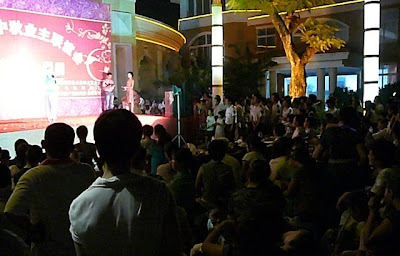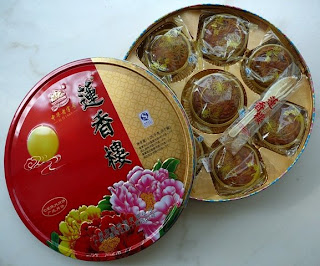 There’s extra anticipation as we approach Mid Autumn Festival for this is the first time that it’s marked with a public holiday. Our friends tell us it is a day to spend with family, to give and eat moon cakes (a solid paste, of varying flavours, covered with moulded pastry), often with pomelos (a large citrus fruit), and to view the full moon. Of course on this side of the hemisphere, where the seasons are back-to-front and the moon is upside-down, we have the woman-in-the-moon and a rabbit too. I’ll be looking out for them both!
There’s extra anticipation as we approach Mid Autumn Festival for this is the first time that it’s marked with a public holiday. Our friends tell us it is a day to spend with family, to give and eat moon cakes (a solid paste, of varying flavours, covered with moulded pastry), often with pomelos (a large citrus fruit), and to view the full moon. Of course on this side of the hemisphere, where the seasons are back-to-front and the moon is upside-down, we have the woman-in-the-moon and a rabbit too. I’ll be looking out for them both!Moon cakes, often in elaborate packaging, have been on sale for several weeks and the commercial opportunities have not gone unexploited. Wal-Mart’s marketing material is full of promotions and their front entrance clogged with displays, complete with spruikers. The bakeries and chain tea shops are producing some very modern and upmarket versions, and there are stalls set up in the streets selling boxes and loose cakes too.
My limited Chinese reading skills diminishes my enjoyment of moon cakes; I can end up eating savoury seaweed ones, or stick sweet fruit ones or ones with egg yoke without any idea of what I’ll get. But I will be eating moon cakes, lots of them, as we’ve been given quite a number by colleagues and friends, and I also acquired a big box at the street party organised by our apartment complex.



We are, of course, keen to see the moon on Mid Autumn Festival so head for the river. Along the bank, just for summer, are a string of open-air restaurants that are packed with festive groups of families and friends of all generations. We congregate at one of the many round tables, protected by a thin red plastic ‘table cloth’, and pop open the plastic wrapper on our vacuum packed tableware. Cold beer is organised, with a little difficulty, and a seafood meal is ordered and fished live from the tanks lining the cooking area. There is little breeze to mitigate the sticky weather, or ripple the river allowing it to reflect the gaudy building lights and the occasional bursts of fireworks. Heavy clouds blank out the sky and it looks like we will be disappointed, but they part, intermittently and momentarily, to reveal the full moon. Small orange lights drift through the heavens and after some debate we identify them as hot air balloons. Silently the sky fills with the paper constructions fuelled by small flames, and we notice several being launched behind us. Our local friends say this is a new trend and we, with them, are soon excitedly purchasing and launching our own balloon. As we watch it fill with hot air and float up to the higher cross currents I reflect that, however enjoyable they were, the elaborate parties are eclipsed in by this simple activity undertaken with friends.








